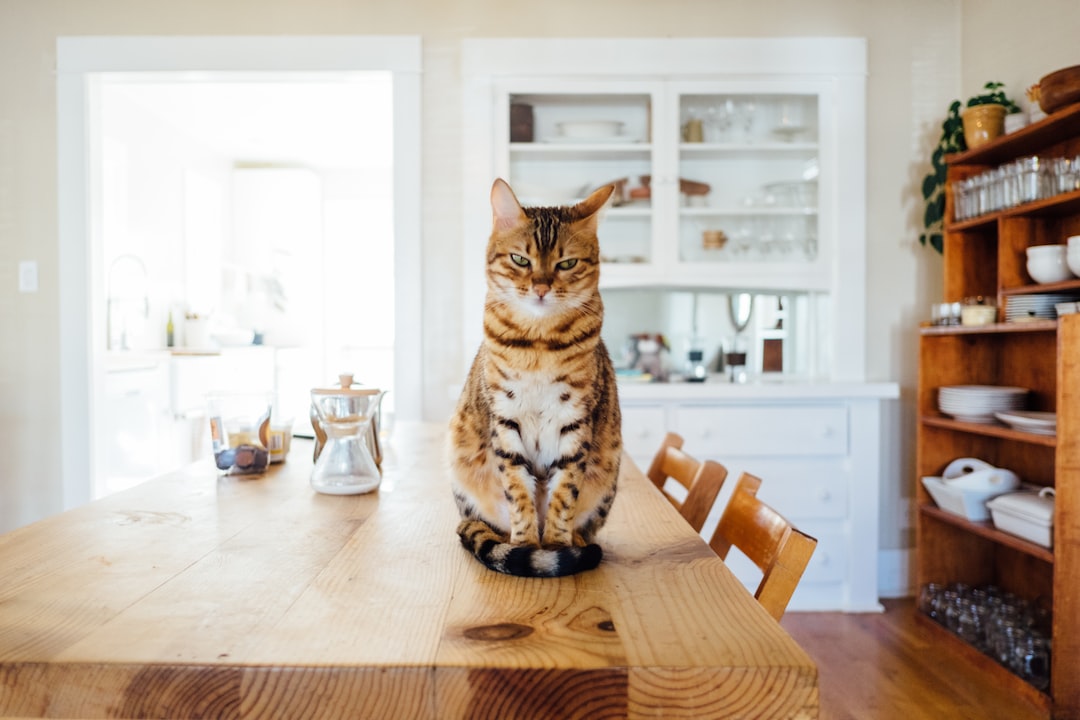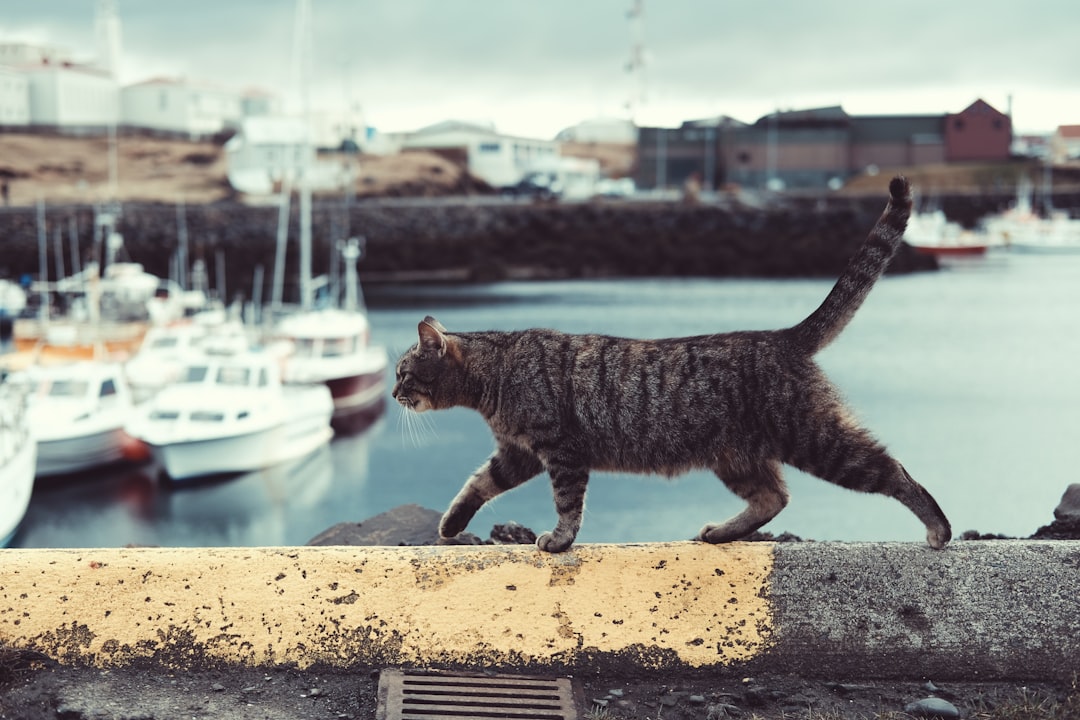
Purrfectly Fit: The Ultimate Guide to Feline Weight Management
Promoting Feline Fitness: The Ultimate Guide to Cat Weight Management
The article discusses the importance of cat weight management for their overall health, including the risks of obesity, determining if a cat is overweight, diet and exercise strategies, the role of veterinarians, and addressing behavioral issues.
Introduction: The Significance of Cat Weight Management
Maintaining an optimal weight for cats is paramount for their overall health and well-being. Obesity in cats is a prevalent issue that can lead to various serious health conditions, such as diabetes, arthritis, and heart disease. The prevalence of obesity among cats in the United States underscores the critical importance of weight management for feline companions. For instance, an overweight cat is more susceptible to developing diabetes, which can significantly impact its quality of life and longevity. By addressing weight management proactively, pet owners can ensure that their cats live healthier and happier lives.
Understanding the impact of obesity on cats' health is essential in implementing effective weight management strategies. Obesity in cats is often associated with excessive calorie intake and lack of physical activity, leading to a range of health complications. For example, obesity can result in insulin resistance, increasing the risk of diabetes in cats. Moreover, adipose tissue in obese cats is highly active, secreting proteins that contribute to metabolic dysfunction and chronic inflammation in their bodies. By managing a cat's weight effectively, pet owners can mitigate the risk of these health issues and promote their cat's overall well-being.
Cats with excess weight are more prone to developing dermatopathy and lameness due to obesity. These conditions can significantly impact a cat's quality of life, hindering their mobility and overall comfort. Furthermore, chronic inflammation and metabolic dysfunction in obese cats can lead to serious health complications, including insulin resistance and diabetes. Obesity can also exacerbate existing health conditions like arthritis, causing additional discomfort and pain for the cat. Research suggests that successful weight loss in obese cats can lead to an improved quality of life and better overall health outcomes. By prioritizing weight management, pet owners can prevent these health risks and ensure a healthier and happier life for their feline companions.
Determining if Your Cat is Overweight
Assessing whether a cat is overweight involves more than just looking at the number on a scale. Veterinarians use body condition scoring systems to evaluate a cat's weight and body condition accurately. Additionally, pet owners can observe physical cues and behaviors to determine if their cat is overweight. A healthy cat should have a visible waistline when viewed from above, and owners should be able to feel their cat's ribs with slight fat covering. Changes in behavior, such as decreased activity levels or difficulty grooming hard-to-reach areas, can also indicate potential weight issues. By paying attention to these signs, pet owners can better understand their cat's weight status and take appropriate action if needed.
Moreover, early detection of weight issues in cats is crucial for timely intervention and effective weight management. If a cat is determined to be overweight, implementing dietary changes and exercise routines can help them achieve a healthier weight. For example, adapting the cat's feeding schedule, portion sizes, and food choices based on their individual needs can support weight loss efforts. By actively monitoring the cat's weight and body condition, pet owners can track progress, make necessary adjustments, and ensure that their feline companion is on the right path to achieving an ideal weight. Regular assessments of a cat's weight status can help prevent the development of obesity-related health problems and enhance their overall quality of life.
 Diet's Role in Weight Management
Diet's Role in Weight Management
The role of diet in weight management for cats is paramount in achieving and maintaining a healthy weight. Transitioning to specialized weight-loss foods formulated for cats can aid in effective weight management. These foods are designed with lower energy density, higher protein content, fiber, and essential nutrients to support weight loss while ensuring optimal nutrition. By incorporating these foods into the cat's diet, pet owners can help their feline companions feel full and satisfied with fewer calories, facilitating weight loss.
In addition to specialized foods, proper portion control and monitoring of caloric intake are essential components of a successful weight management plan for cats. By measuring food portions accurately and keeping track of daily caloric consumption, pet owners can prevent overfeeding and ensure that their cats are consuming the appropriate amount of calories for weight loss. Understanding the caloric content of treats and factoring them into the cat's daily intake is also crucial. Choosing low-calorie treats or using them as a reward for positive behavior can help in reducing the overall caloric intake without compromising on taste or enjoyment. By being mindful of portion sizes and caloric values, pet owners can support their cat's weight loss journey effectively.
 Exercise Strategies for Cats
Exercise Strategies for Cats
Incorporating exercise into a cat's routine is essential for their weight management and overall well-being. Interactive toys and playtime can help cats burn calories, stay active, and maintain a healthy weight. For example, engaging cats in play sessions with toys that encourage movement and agility can provide both physical and mental stimulation, promoting an active lifestyle. Additionally, providing climbing structures, such as cat trees or shelves, can encourage cats to engage in natural behaviors like climbing and jumping, contributing to their physical fitness.
Furthermore, puzzle feeders can serve as an excellent way to combine mealtime with physical activity for cats. These feeders require cats to "hunt" for their food, stimulating their senses and providing mental enrichment. By incorporating puzzle feeders into a cat's feeding routine, pet owners can make mealtime engaging and help prevent overeating. Regular play sessions and exercise activities tailored to a cat's preferences can not only aid in weight management but also strengthen the bond between the cat and its owner. By encouraging regular exercise and physical activity, pet owners can support their cat's weight loss journey and promote a healthier lifestyle.
The Importance of Veterinary Check-ups
Veterinarians play a pivotal role in creating personalized weight management plans for overweight cats. During veterinary check-ups, professionals can assess a cat's weight status, monitor progress, and make necessary adjustments to the weight-loss plan. For instance, if a cat is not responding as expected to a specific diet or exercise regimen, a veterinarian can provide guidance on alternative strategies to achieve weight loss goals. Regular check-ups are crucial for tracking a cat's weight loss journey, addressing any health concerns, and ensuring that the weight management plan is effective.
Additionally, veterinarians consider various factors when developing a weight reduction plan for cats, such as their age, breed, activity level, and any underlying health conditions. By tailoring the weight management plan to meet the individual needs of each cat, veterinarians can optimize the chances of successful weight loss and long-term weight maintenance. Moreover, veterinarians can recommend appropriate dietary changes, exercise routines, and behavioral strategies based on a cat's specific requirements. Collaborating with a veterinarian throughout the weight management process can provide pet owners with expert guidance and support, ultimately leading to improved health outcomes and a better quality of life for their feline companions.
Managing Cat Weight with Proper Nutrition
Balanced nutrition plays a fundamental role in managing a cat's weight effectively and promoting their overall health. Feeding cats smaller, more frequent meals can help regulate their metabolism and prevent overeating. Dividing a cat's daily food portion into several meals throughout the day can maintain stable blood sugar levels and prevent hunger pangs, supporting weight management efforts. High-fiber diets are also beneficial for overweight cats as they can enhance feelings of fullness without adding excess calories. Foods rich in fiber can promote digestive health, aid in weight loss, and contribute to overall well-being.
Furthermore, veterinarians may recommend specific weight-loss diets that are tailored to a cat's individual needs and weight management goals. These specialized diets are formulated to provide essential nutrients, control calorie intake, and support weight loss while preserving muscle mass. By following a veterinarian-recommended weight-loss diet and monitoring the cat's progress, pet owners can help their feline companions achieve a healthy weight and improve their overall quality of life. Additionally, incorporating dietary supplements or specialized weight-loss foods can complement a cat's weight management plan and contribute to long-term weight maintenance. By focusing on proper nutrition and feeding practices, pet owners can play a significant role in managing their cat's weight effectively and ensuring their well-being.
 Addressing Behavioral Issues
Addressing Behavioral Issues
Behavioral issues related to food and feeding habits can impact a cat's weight and overall health. Cats exhibiting begging behaviors may require behavior modification techniques to prevent overfeeding. For instance, providing mental stimulation through interactive feeders or puzzle toys can engage cats during mealtime and help prevent excessive food consumption. By encouraging cats to "work" for their food, pet owners can promote mental enrichment and prevent boredom-related overeating. Additionally, feeding cats in separate areas or using puzzle feeders can help control food intake and prevent obesity by slowing down their eating pace and making mealtime more stimulating.
Consistency in feeding schedules and meal portions is essential, especially in multi-cat households. Owners should ensure that each cat receives the appropriate amount of food based on their individual needs and weight status. Establishing a routine where each cat is fed separately in designated feeding areas can help prevent food stealing, overeating, and weight management challenges. By addressing behavioral issues surrounding food consumption and implementing structured feeding practices, pet owners can create a supportive environment for their cats to maintain a healthy weight. Consistent feeding schedules, appropriate portion sizes, and engaging feeding practices can contribute to successful weight management and overall well-being for feline companions.
Conclusion: Promoting Long-Term Health Through Cat Weight Management
Prioritizing cat weight management is a crucial aspect of responsible pet ownership that can significantly impact a cat's health and quality of life. By focusing on maintaining an optimal weight through a balanced diet, regular exercise, and veterinary guidance, pet owners can contribute to their cat's long-term well-being. For example, imagine a scenario where a cat owner notices their pet has been steadily gaining weight over time. By taking proactive measures such as consulting with a veterinarian, implementing a customized weight loss plan, and monitoring progress closely, the cat's health and overall quality of life can improve significantly, leading to a happier and healthier feline companion. Through dedication, awareness, and informed decision-making, pet owners can help their cats achieve and maintain a healthy weight, ultimately enhancing their longevity and ensuring a fulfilling life.

